On October 10, the first Vietnam Private Economic Panorama Program (ViPEL 2025) took place in Hanoi.
At the dialogue session of Committee 4 on resource and service development, Mr. Nguyen Anh Tuan, Vice Chairman of the Board of Directors of Vietjet Aviation Joint Stock Company, said that the achievements that the private sector has achieved in recent times are very remarkable, but still quite modest compared to its potential.
According to Mr. Tuan, the most important thing now is to find new ways for the business community to work together and develop together, thereby unlocking the potential and aspirations of the Vietnamese people.
“I have never seen the entrepreneurial spirit rise as high as it is now. The attention of the Government, the Politburo and the National Assembly for businesses and entrepreneurs has never been stronger, clearly demonstrated through the issuance of Resolution 68 specifically for the private economic sector,” he emphasized.
According to Vietjet leaders, human resources and services are the backbone, connecting all areas of development. There is still a lot of room for service development in Vietnam, but to exploit it effectively, a suitable mechanism is needed.

Delegates of Committee 4 on resource and service development (Photo: Hai Long).
"We have many advantages in politics and resources, but human resources are the most important factor. To promote those resources, we must follow the public-private partnership mechanism, thereby developing the service sector, making Vietnam's brand clearer on the regional and world map," he emphasized.
Mr. Tuan expressed his hope that the business community will continue to discuss and propose initiatives to "turn the will and aspirations of entrepreneurs into reality", contributing to realizing the country's common development goals.
Sharing the same view, Mr. Le Tri Thong - Vice Chairman of the Board of Directors, General Director of PNJ, and Chairman of the Ho Chi Minh City Young Entrepreneurs Association - said that Vietnam is standing on the threshold of a strong rise, when support policies are increasingly clear and the position of the business community is raised, marking a "historic turning point" in the development process.
“We are combining the steering wheel of policy and the oars of business. What we need to do is build a new model, a new formula to create stronger synergy between the public and private sectors,” Mr. Thong emphasized.
According to him, ViPEL's initiatives today are just "the first pencil sketch", which need to be further completed by the business community and associations with "ink strokes, enthusiasm and new initiatives" to make the picture of public-private cooperation sharper and more practical.
“We need a continuous working mechanism, more closely connecting the State and enterprises. This is the time to move from the state of 'self-steering, self-driving' to the harmonious coordination between the steering wheel and the oars, to move towards a new height,” Mr. Thong affirmed.

Overview of the dialogue session of Committee 4 (Photo: Hai Long).
Ms. Nguyen Do Quyen, Deputy General Director of FPT Retail Joint Stock Company, shared that the first steps of Committee 4 were still uncertain and faltering, because the participating businesses came from many different industries, so they were still fragmented and disjointed.
“From that diversity, we together seek the red thread to connect, to anchor ourselves to the common goal of nation building,” said Ms. Quyen.
According to her, the service industry has a special advantage because it is “very close to the people”. This closeness helps businesses determine a specific measure of value: how to make people happier, smile more, and be happier. However, for initiatives to come into practice, it is important to have a clear and transparent legal framework.
Ms. Quyen cited the universal health check-up program as an example: “People are extremely happy when they are informed that they will have regular health check-ups. However, to implement it, the grassroots health sector is under great pressure and lacks resources. This is the time to mobilize public and private resources to work together to make people truly happy.”
ViPEL has gathered the core forces of economic sectors, formed the Executive Council and 4 specialized Committees. With a diverse structure, connecting businesses of many scales and fields, this model creates an action ecosystem towards mastering the core competencies of the Vietnamese economy.
At the morning sessions, more than 500 businesses participated in discussions within the framework of 4 specialized committees and the ViPEL Women Entrepreneurs Forum. Businesses together identified the "big problems" of the economy, determined growth potential, breakthrough opportunities and proposed projects in the spirit of public-private partnership.
Many important initiatives have been put forward. Specifically, Committee 1 proposed the formation of a Low Altitude Economic Alliance (LAE) in the field of emerging technology. Committee 2 proposed large-scale projects such as the World Maritime Center in Ho Chi Minh City or offshore wind power in the South... demonstrating the pioneering role of private enterprises in strategic infrastructure projects.
At Committee 3 on manufacturing industry, the "Vietnam Supporting Manufacturers Alliance" was born with the expectation of increasing the localization rate and optimizing the production chain.
Meanwhile, Committee 4 on resource and service development joined hands to create projects to improve the quality of service sectors with the criteria of "Making Vietnamese people happier, smiling more" through the form of public-private partnership.
Source: https://dantri.com.vn/kinh-doanh/chua-bao-gio-tinh-than-doanh-nhan-len-cao-nhu-luc-nay-20251010142640357.htm











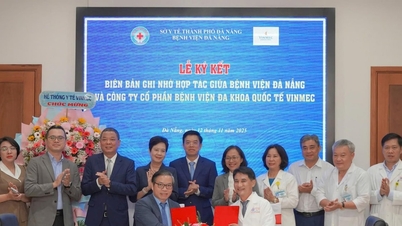





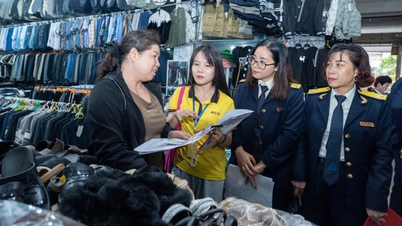






































































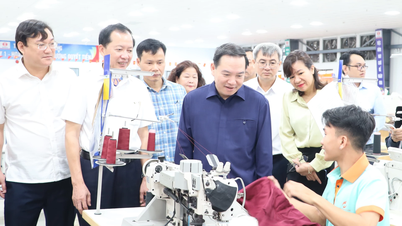

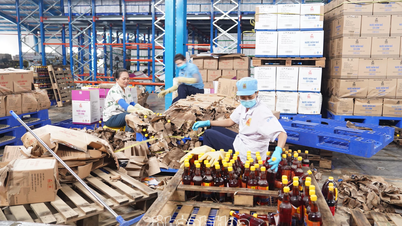
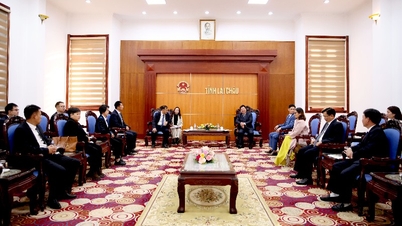
















Comment (0)